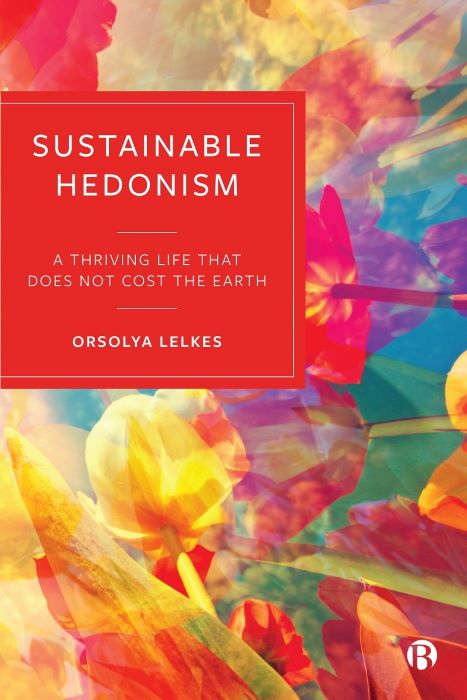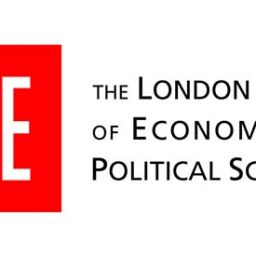After COVID-19: A time for conscious hedonism?
Originally published by Bristol University Press on their Transforming Society blog.

The COVID-19 pandemic has brought a sense of loss of control, and for many people it has been a painful experience. Our routines, lifestyle choices and all that we have so far taken for granted have suddenly been shattered and questioned. The world around us has shrunk, and existing structures have crumbled. Can it become a chance for a conscious readjustment of our lives?
We may have gained new insights. Social features like solidarity have now become visible and crucial. On a personal level, mental wellbeing has become precious. Autonomy, flexibility and the ability to cohabit and collaborate cordially have been essential for coping. Our experiences, either benefiting from these traits or missing them, could provide a basis for our future aspirations. What is the world we want to sustain and create with our efforts? What is ‘success’ for us? Can we enjoy life in the midst of a crisis-ridden world?
Is ‘conscious hedonism’ feasible?
Caricatures of hedonism
A frequent contemporary understanding of hedonism is like a caricature to me: a greedy, bulky figure sitting in front of a messy table eating from all the plates, including those of the neighbours, farting and burping. Irritating or perhaps amusing to some, but who would want to dine with this character? The figure is undoubtedly egocentric, has no self-restraint and is enslaved to impulses (and those of the powerful advertising industry), and as a result, drowning in objects, in body mass, and ultimately devouring the planet’s resources. A perhaps more appealing image is that of the global rich: drinking a cocktail on a private jet while flying between luxurious properties. It is actually a tiny wealthy global elite that is responsible for a sizeable share of global emissions. Do we regard this group as role models or not?
A dissimilar image of a hedonist is that of a refined wine connoisseur, holding up a glass of excellent wine, observing its colour, its movement in the glass and its smell before slowly tasting and savouring the noble liquid. This latter image comes closest to the original ancient Greek concept of hedonism. It is the type of hedonism that could provide us with much inspiration nowadays in our quest for a joyful life that is not harmful.
The good practice of hedonism
Ancient Greek hedonists were masters of enjoying life, and regarded pleasure to be the most precious thing in life. Perhaps less known is their call for inner independence and an endeavour not to be enslaved to one’s desires. Epicure suggested avoiding fairs in order to prevent unnecessary desires, to prevent temptation at all. This has a lot in common with contemporary minimalist lifestyles, which aspire to be restrained in terms of material possessions, but abundant in terms of enjoying life.
Aristotle called for self-mastery, a middle way, avoiding the extremes of asceticism or indulgence. The middle way was also a key teaching of the Buddha. Buddha personally explored and experienced the extremes and it was in the middle where he ultimately found enlightenment.
Seeking maximum pleasure, or utility-maximisation as it’s referred to in economic models on human behaviour, is not an optimal life strategy for many reasons, and causes much malaise personally and collectively. But why would we want to let go of something if it is pleasing? Only for the sake of something even more precious!
According to Aristotle, pleasure is not the ultimate value in life; rather, it is happiness or ‘flourishing life’. He holds that happiness is not the gift of fate, Gods or a lucky turn of external events, but a matter of inner practice. Contemporary psychological evidence confirms that attitudes affect our wellbeing a lot more than external circumstances, although it does not deny the importance of the latter either, especially with respect to basic goods and material security. The key questions are: What do we really need in terms of external resources? What can we do in our internal adjustment to enjoy life to the fullest? In sum, what is the right strategy to become a conscious hedonist?
An experiential laboratory of a good life
Less known in this context is the importance of values – materialist values in particular. Materialist people tend to aspire for more in financial and material terms, so are more prone to excessive consumption. On the flip side, they benefit little from this, as they tend to have lower subjective wellbeing. Materialism and egoism are often related to compromised core psychological needs for autonomy, competence and belonging. They may be a strategy to fill a void that cannot be filled in this way.
A healing of these suboptimal life strategies is possible and may be not only a key to personal happiness, but also a cure for ecologically and socially harmful behaviours as well. Suboptimal life strategies are not the exclusive features of a few villains in the world; most of us may also have inner parts that sabotage our endeavours for a good life.
An inner readjustment of values and priorities will not simply happen as a result of alarming headlines or moral pressure. Rather more engaging is a friendly invitation to explore an alternative. This exploration cannot remain intellectual, but needs to be embodied, emotional and intuitive as well. It may be about existential matters, but does not need to lack a playful spirit or a friendly and curious attitude. The experiential learning enabled by the so-called ‘theatre of the soul’ can become the laboratory of a flourishing life.
It does not mean that we do not need institutional changes or incentives. But institutional change will not bring us the ‘good life for all’ if it is not intertwined with a personal and collective realignment.
We have the intellectual and practical tools available that can support us to become conscious hedonists, living an enjoyable and caring life that does not cost the Earth.

Sustainable Hedonism by Orsolya Lelkes.
Available to order on the Bristol University Press website for £17.59.




